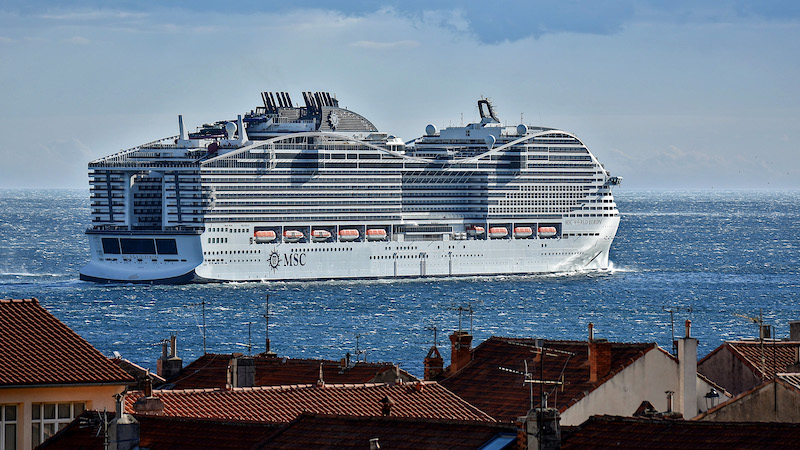Environmental activists sue the EU for including fossil-fuelled aircraft and ships in the green taxonomy
Environmentalists have filed a lawsuit against the European Union for including polluting aircraft and fossil fuel ships in the Union’s green investment rules.
The European Commission should review the “flawed” criteria for sustainable financing of the aviation and shipping sectors in the EU taxonomy, a guide designed to direct private investment towards activities aligned with the “net zero” objective, according to a coalition of non-governmental organisations filing a lawsuit filed on Tuesday at the European Court of Justice in Luxembourg.
The environmental groups claim the EU acted unlawfully at the end of 2023 when it introduced “relaxed” rules allowing fossil fuel aircraft and ships to be given a green label if they meet “weak” efficiency standards.
“The aviation and shipping criteria send a completely wrong signal to investors – they are directing their investments into aircraft and ships that will pollute the climate for decades to come,” said David Kay, legal director at Opportunity Green, which filed the complaint together with the CLAW climate justice initiative, Dryade and the Dutch non-governmental organization Fossielvrij.
Series of lawsuits
The EU introduced its “taxonomy for environmentally sustainable economic activities” in 2020, with the aim of preventing greenwashing and channeling private capital into green technologies most needed for the transition to net-zero emissions. According to EU data, investments in “taxonomy-compliant activities” amounted to €440 billion between January 2023 – when the first rules came into force – and May 2024.
But a series of legal battles have accused the rules of making polluting industries greener. Environmental activists from Greenpeace and a coalition that includes Client Earth and WWF filed two separate cases with the European Court of Justice (ECJ) last year challenging the inclusion of fossil gases – under certain conditions and for a limited period of time. – and nuclear energy have been added to the list of green investments. The cases have yet to be heard and a verdict is not expected before 2025.
How can governments address loss and damage at the national level?
The latest lawsuit, filed on Tuesday, challenges the criteria adopted in November 2023 for labeling certain aviation and shipping activities as sustainable.
“Marginal” emission savings
In its rules, the EU Commission has classified air and maritime transport as “transitional activities” because aircraft and ships with zero CO2 emissions are not yet technologically and economically feasible. The Commission introduced screening criteria to allow the inclusion of existing technologies if they meet a set of efficiency standards that lawmakers say would help the world meet the Paris Agreement’s goal of limiting global warming to 1.5 degrees.
But NGOs argue that these thresholds are too broad and do not pass this scientific test. For example, huge cruise ships powered by liquefied natural gas (LNG) and more than 7,000 new Airbus aircraft that run almost entirely on fossil fuels – equivalent to 90 percent of the company’s future orders – are considered sustainable under the EU classification, an analysis by the NGO Transport and Environment shows.
This is because their greenhouse gas emissions are lower under regulations than those of the older and more polluting ships and aircraft they would replace. However, the NGOs argue that these emissions savings are “marginal” and warn that encouraging investment in these technologies will lock in carbon-intensive assets for decades.
Kay of Opportunity Green said the commission had “provided no evidence that these standards support a 1.5 degree path”.
“Given the long lifespan of these ships and aircraft, they will still be in the air and on the seas in 20 to 25 years. This is a dangerous development when it comes to directing investments in this taxonomy,” he added.
Aviation and shipping account for 8% of the EU’s total greenhouse gas emissions, but their share has increased rapidly over the last decade in parallel with the continued growth of air passengers and maritime trade.
The EU Commission did not respond to a request for comment.




